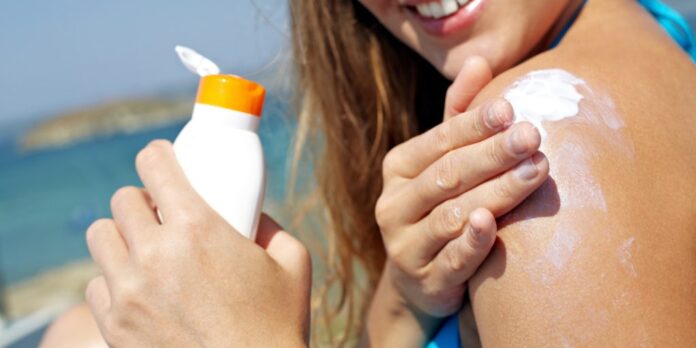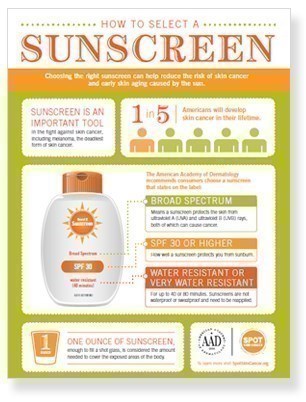The sun’s rays are strongest during the summer months so it is important to take care of your skin while you enjoy the outdoors.
“It is crucial to use some sort of sunscreen to protect your skin while out in the strong Florida sun,” says Dustyn Shroff, Vice President of GreatFlorida Insurance, Florida’s largest independent health insurance agency.
The American Academy of Dermatology (AAD) recommends that everyone use sunscreen regardless of age, gender or race, everyone can get skin cancer.
There is a lot of information out there about sunscreen, let’s start with the basics.
SPF-Sun Protection Factor, SPF is a product’s ability to block out the sun’s harmful rays. If you use a sunscreen with SPF 15, you can stay in the sun 15 times longer than you can without sunscreen before you sunburn.
UVA/UVB-The U.S. Food and Drug Administration (FDA) maintains, there is only notable protection up to 50 SPF. Claims with an SPF higher, are most likely false.
Use of broad spectrum coverage is suggested. This means a product offers ultraviolet A radiation (UVA) and ultraviolet B radiation protection (UVB). UVA rays, aging rays, penetrate deeper into the skin and cause wrinkling. UVB rays, burning rays, are the primary cause of sunburn and skin cancer.
Water-resistant/Waterproof-Water-resistant sunscreen provides 40 minutes of effectiveness in water. Waterproof products offer 80 minutes of protection in water.
Types of Sunscreen-This is where the subject of sunscreen can be divisive. Doctors and organizations differ on their opinions over the types of sunscreen that are best for you.
“Lotions, oils, gels, spray and sticks- picking the right sunscreen for you and your family is a matter of personal choice,” says Buck with GreatFlorida Insurance, Florida’s leading independent healthcare insurance agency.
Mineral-based/physical sunscreen-Commonly referred to as “natural” and considered more of a sun block. Containing titanium dioxide or zinc oxide, these products tend to sit on the skin’s surface. Many feel they are messy and they can leave a white or colored film on your skin. Manufactures have made some improvements to their products over the years, so it is not true for every mineral based sunscreen. Some, such as Consumer Reports, reveal that most of these sunscreens do not live up to their SPF claim on the label.
Chemical sunscreen-These products contain ingredients that act as filters to reduce ultraviolet radiation penetration to the skin. They act as chemical absorbers. Most popular commercial sunscreens are chemical sunscreens. In a recent report, the Environmental Working Group (EWG) warns many products rely heavily on an active ingredient, oxybenzone, a proven hormone disruptor and allergen. Another harmful ingredient is methylisothiazolinone, a proven serious skin allergen. While vitamin A seems good, it can heighten sun sensitivity.
Sprays are convenient and easy to use but they are currently under review by the FDA due to an inhalation risk.
Some AAD recommendations regarding sunscreen are as follows:
- Use at least a 30 SPF, broad spectrum sunscreen
- 1 ounce, enough to fill a shot glass is the right amount to use on your body
- Reapply
- Check the expiration date but your sunscreen should be good for three years
- Babies under 6 months old should not use sunscreen
You cannot depend on sunscreen alone to keep you from dealing with skin cancer. If you are looking for a caring and knowledgeable health care provider, contact GreatFlorida Insurance for all your healthcare insurance needs.





